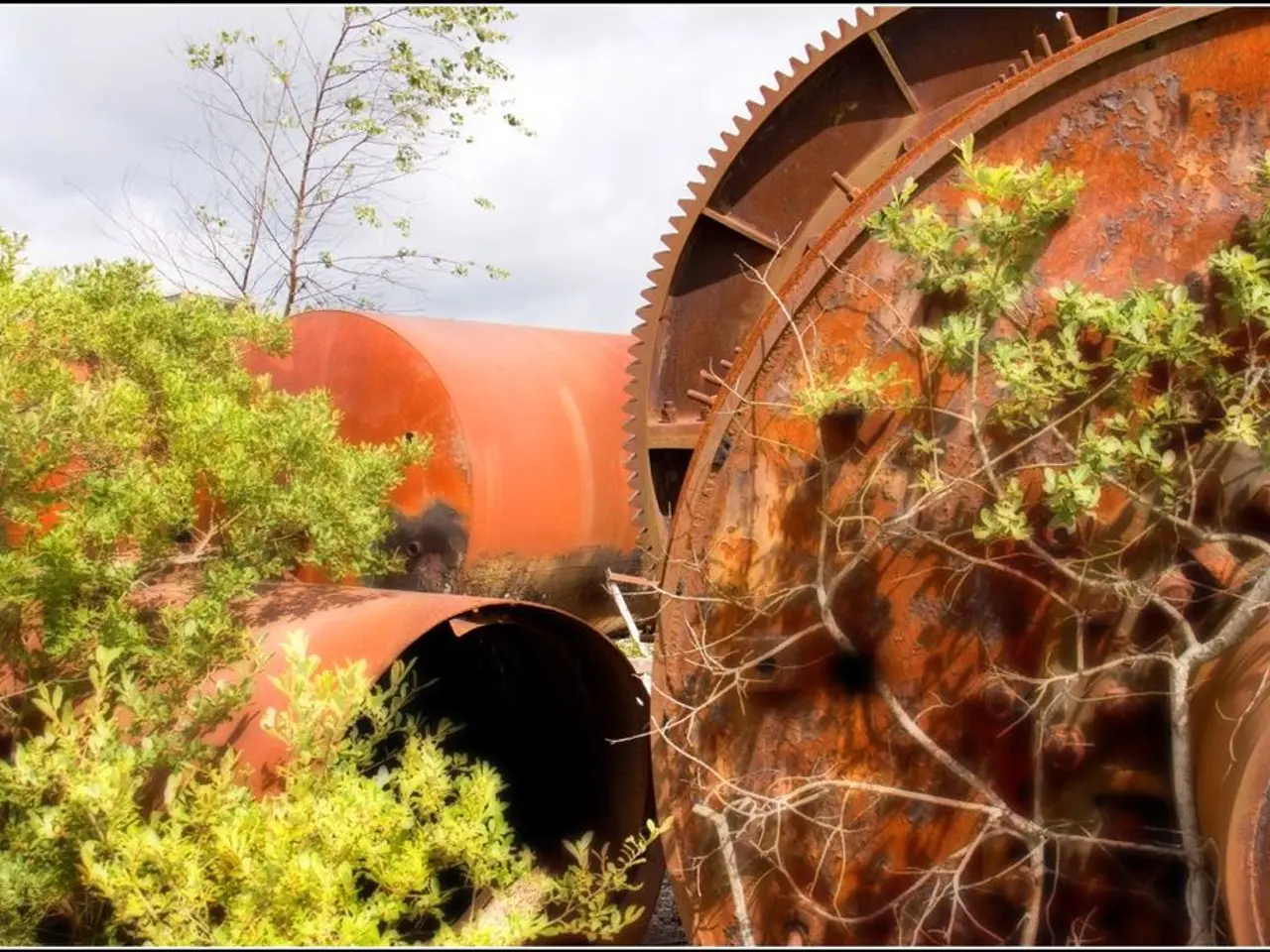Increased Costs for Rare Earths Due to China's Export Regulations - Increased pricing for rare earth elements due to China's export restrictions
In a significant development, China's escalation of export controls on rare earth metals has contributed to a price increase, according to Bertram Brossardt, CEO of the Federation of German Industries (BDI). This move, part of the US-China dispute, has raised concerns among economists Monika Boven and Bastian Reßing, who have warned of potential shortages and production stoppages in key German industries.
In April 2025, China imposed export restrictions on seven key rare earth elements, including samarium, gadolinium, terbium, dysprosium, lutetium, scandium, and yttrium. These elements are vital for manufacturing magnets, batteries, and screens, severely impacting industries dependent on high-tech components, including defense and electronics in Europe and the USA.
The restrictions have complicated supply chains for German and American manufacturers, as nearly 90% of global rare earth refining occurs in China, and alternatives are often costlier or of lower quality. This has led to operational challenges, increased costs, and disruptions in mergers and acquisitions activity within affected sectors.
The trade tensions have resulted in retaliatory measures and negotiations. For instance, after the US imposed tariffs on Chinese goods, China used rare earth export restrictions as a negotiating lever. The Trump administration responded with visa revocations and bans on semiconductor software sales to China. Eventually, a trade framework agreement was reached, restoring some US access to Chinese rare earths in exchange for tariffs and other trade concessions.
Looking ahead, both Germany and the USA are likely to invest in diversifying their rare earth sources to reduce dependency on China. This includes developing domestic mining and refining capabilities and sourcing from other countries, though these will take time and face challenges related to cost and environmental impact.
Countries may also establish or expand strategic reserves of critical rare earth elements to cushion against supply shocks resulting from export restrictions or trade conflicts. Increased funding in research for rare earth substitutes or alternative technologies that reduce or eliminate the need for these elements may be prioritized to mitigate long-term dependence.
Continued diplomatic engagement to resolve trade conflicts and establish more predictable export regimes is a key approach. The recent US-China trade framework on rare earths shows that negotiated compromises can restore some access while maintaining leverage.
Germany and other European countries may coordinate policies and joint investments within the EU and with allies like the USA to secure rare earth supplies, share technology, and build resilient supply chains. The Association of Bavarian Chambers of Commerce and Industry (vbw) recommends building a strategic raw materials reserve, recycling, and free trade agreements or partnerships with other supplier countries to prepare for similar situations in the future.
DZ Bank's analysis indicates that China has successfully wielded its sharpest sword in the trade conflict with the US through the export restrictions. The economists warn that Germany should be prepared for similar situations in the future, as China holds a near-monopoly in the processing of rare earths and accounts for approximately two-thirds of global rare earth mining.
In summary, the current impacts revolve around supply restrictions, increased costs, and strategic vulnerabilities, while future strategies focus on supply diversification, stockpiling, innovation, and diplomatic efforts to reduce dependence on China’s rare earth supplies amid ongoing trade tensions.
- In light of the ongoing trade tensions, Germany may revise its community policy to prioritize investments in diversifying domestic sources of rare earth elements, focusing on mining, refining, and recycling to reduce dependency on China and strengthen the country's economic resilience.
- Given the strategic significance of rare earth elements in crucial high-tech industries, employment policy in Germany may need to address operational challenges and increased costs associated with supply restrictions, considering measures such as workforce retraining, subsidies, and incentives for innovative technologies that can mitigate the need for these elements, thereby fostering a more competitive and sustainable industrial landscape.




